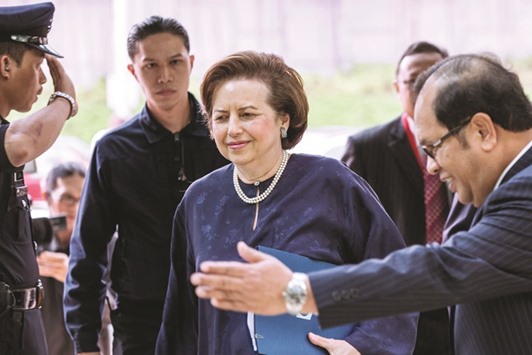Next week’s influential World Islamic Banking Conference to be held from December 5 to 7 in Bahrain will see a lot of interesting and highly relevant keynotes, debates and panels, but also a premiere that highlights a phenomenon not yet clearly studied in the industry: The role of women in Islamic finance and the opportunities that arise for them.
Simply Sharia Human Capital, a London-based recruitment and training centre solely dedicated to Islamic finance, at the conference will unveil a report called “Women in Islamic Finance & Islamic Economy: Unlocking Talent,” one of the rare studies that actually look into roles, careers and achievements of women in the Islamic finance industry, and the job opportunities it holds for female career seekers from an educational perspective.
“There are a number of success stories showcasing women’s excellence in the Islamic financial industry worldwide,” says Stella Cox, managing director of DDCAP Group, a UK-based financial infrastructure service provider for Shariah-compliant financial products, and contributor to the report.
“For example, to supplement the numerous instances of women now being elevated to senior executive positions, in Malaysia and Indonesia we are witnessing an ever increasing number of female Shariah scholars appointed to the Shariah boards of banks and other financial institutions,” she adds.
Malaysia is indeed a good example for the growing presence of women at senior levels in the Islamic finance sector. Malaysian women have not only set the pace to occupy high positions in Islamic banking, but have been playing a prominent role in the overall development of the industry as well. Remarkably, it was a woman, Zeti Akhtar Aziz, who presided over Bank Negara Malaysia, Malaysia’s central bank, from 2000 to 2016, as a first in this position. And on a list of London-based ISFIRE – Islamic Finance Review, which ranks the 20 top women in Islamic finance, 15 happen to be Malaysians.
Indonesia, for its part, has many women sitting on its National Shariah Council. Other countries where Islamic finance provides a career choice for women are Pakistan and Lebanon. However, outside those countries women keep playing only small roles in Islamic banking at a level above middle management and virtually no role at all when it comes to Shariah advisory.
In the Gulf Cooperation Council (GCC) countries and the wider Middle East, only a handful of women hold senior positions in Islamic finance, which does not have to do with a lack of excellence, but more with preconceived ideas of the role of women in society and business and depending on how gender separation is still entrenched as part of the culture, more in Saudi Arabia and possibly less in the UAE and Qatar.
Notable examples are Lubna Olayan, CEO of Riyadh-based Olayan Financing Company, Nahed Taher, founder and CEO of Gulf One Investment Bank based in Bahrain and Suad al-Humaidi, member of the management board of Lebanon’s Bank Audi Group which operates an Islamic Banking Division, to quote a few of the few who made it to the very top in Islamic banking. Another excellent example for a female top manager in Islamic finance was the CEO of Abu Dhabi Islamic Bank in Egypt, Nevine Loutfy, who sadly perished last week.
But it is clear that a shift is under way in the GCC as the region’s banks aim to draw more female clients as the share of the female population with investable assets grows. Those potential female clients need financial advice which they would seek preferably from women, thus the banks have recognised the need for more female bankers.
“While the role of women in Islamic finance is increasingly apparent across the front office, there are now examples of women who have been appointed partners and directors within professional advisory firms as a result of their expertise in Shariah-compliant financial practice,” explains DDCAP Group’s Stella Cox.
As for grooming female talent in Islamic finance, there are several academies that are standing out, namely the International Islamic University Islamabad and International Islamic University Malaysia, the Global University of Islamic Finance in Kuala Lumpur and a growing number of universities in the GCC, namely Hamad bin Khalifa University in Qatar, University College of Bahrain, University of Sharjah, about a dozen universities, seminar and skills training providers in the UAE and quite many in the UK, and prominent networking groups such as the Women in Islamic and Ethical Finance Forum, launched by Samina Akram, founder of London-based Islamic finance start-up Samak Ethical Finance Ltd.

Zeti Akhtar Aziz, then governor of Bank Negara Malaysia (centre) arrives at the venue of the Global Islamic Finance Forum in Kuala Lumpur in this file photo dated September 2, 2014. Malaysian women have not only set the pace to occupy high positions in Islamic banking, but have been playing a prominent role in the overall development of the industry as well. Zeti Akhtar Aziz, who presided over Malaysia’s central bank from 2000 to 2016, was a first in this position.
